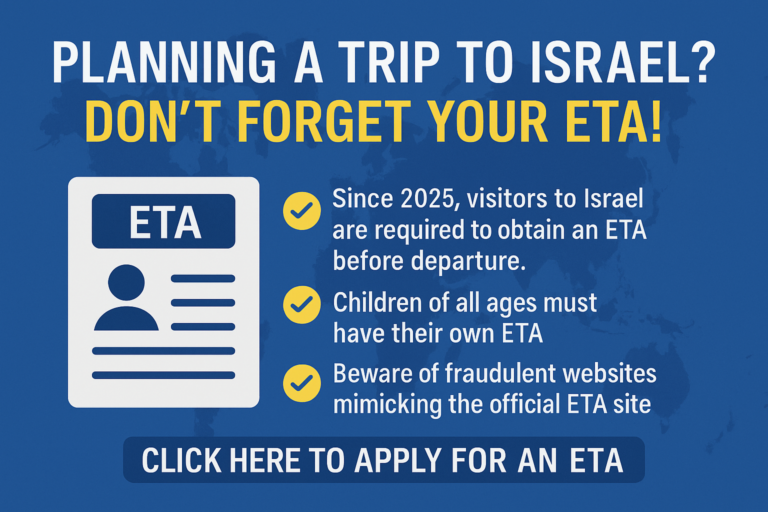A month ago I wrote a letter to Yeshiva World trying to give some context and support to the new Shidduch initiative.
I wrote it as a complete outsider to any and all efforts to help with the Shidduch crisis, with my only connection being a witness to the suffering it causes to so many. I wrote the letter simply frustrated with the criticism of people who, before even hearing what the plan is, rush to criticize an effort that Rabbonim have collectively given thousands of hours to formulate and develop to help with such a real and painful problem.
Through Hashgacha Pratis I was connected with a Rav involved in the initiative, and I learned that beyond the earlier OU study, Rabbonim recently directed a more comprehensive project tracking thousands of 8th grade graduates from numerous Yeshivas and Bais Yaakovs over the past twenty years.
This data collection—categorized by age, year, school, and community—provides conclusive evidence that intervention is necessary. While the Rabbonim have guided against public release of the statistics for now to prevent unhelpful anxiety and hurt, they’re preparing the data to share privately with interested parties (you can request to receive the data when it’s anonymized for the public by emailing [email protected]).
That said, having had a window into the incredible effort by Gedolei Torah, Roshei Yeshiva, and Rabbonim to do for Klal Yisrael and Bnos Yisrael in this extremely busy time of the year—giving away hours upon hours to work on various plans that will unfold in the coming months to introduce and launch the initiative to the community—I feel compelled to do my part as a random member of the tzibur, not a Rav, askan or anything – just a Yid that cares.
The reality is that this issue affects people differently. For some, it’s merely an academic discussion—an actuarial debate that can be researched gradually over decades.
But for many of us—perhaps the silent majority – who have lived through this parsha ourselves, as singles, as parents, or as witnesses to family and friends struggles—we know this is not merely a theoretical discussion. It’s a painful reality causing real, raw and ongoing human suffering that often goes unrecognized.
Because not everyone understands the depth of this pain, they may not grasp the urgency of this initiative. Therefore, we all need to speak up why coming together as a Tzibur is so crucial now.
So I turn to you, the reader, and ask:
If you go to sleep with a lump in your throat seeing your daughter come back from yet another younger friend’s chasuna, while she has been waiting for years and hasn’t dated in 10 months – please speak up and tell your Rav about the pain. Tell him you’re ready to do things differently.
If you bite your lip seeing your daughter davening so intensely for her shidduch for so many years, and wish you could somehow help – please speak up and tell your son’s Rosh Yeshiva about the pain. Tell him you’re ready to do things differently.
If your heart aches for the thousands of singles dreading spending a three-day Yom Tov either alone or surrounded by their younger married siblings and their children – please speak up and tell your daughter’s seminary principal about the pain. Tell her you’re ready to do things differently.
If you silently cry for your neighbor’s daughter who came back from seminary so innocently happy and hopeful, and now, years later is becoming increasingly bitter and withdrawn – please speak up and tell your daughter’s 12th grade Mechaneches about the pain. Tell her you’re ready to do things differently.
If you wince knowing that tenth graders are going through high school with anxieties about whether they will be able to find a shidduch and get married – please speak up and tell your friends. Tell them you’re ready to do things differently.
If you hurt for your coworker who grew up in a difficult family situation and so badly wants to start a new life and build her own family but struggles to get a date because of our imbalanced shidduch system – please speak up and tell your family about the pain. Tell them you’re ready to do things differently.
If you have spent many suppers telling your husband how you wish you could somehow find a shidduch for your classmates who don’t have a husband to eat supper with – please ask your husband to speak up and tell his friends about the pain. Tell them you’re ready to do things differently.
If you weep for your former student — who, after years without suggestions, has cycled through segulos, brachos from tzadikim, and havtachos from mekubalim, only to grow increasingly disillusioned with everything she was raised to believe — please speak up. Tell your students about the pain. Tell them you’re ready to do things differently.
If your heart hurts when your former seminary roommate – still single – comes to tell you Mazel Tov at your third child’s bris – please speak up. Tell those around you about the pain. Tell them you’re ready to do things differently.
If you come to your in-laws for Pesach and feel for your sister-in-law who returned from seminary two years ago without a single date, with phones deafeningly silent – please speak up. Tell your chavrusa about the pain. Tell him you’re ready to do things differently.
If the Bonei Olam ads pull at your heart and inspire you to donate to that wonderful organization, think about your unmarried cousin’s dreams of holding her own baby and – please speak up. Tell your neighbors about the pain. Tell them you’re ready to do things differently.
If you silently weep seeing your niece—a wonderful Bais Yaakov girl—struggle for years to find a shidduch while heroically holding onto Yiddishkeit despite her sense of betrayal by a system making it so hard for her -please speak up. Tell your friend from your table in shul about the pain. Tell him you’re ready to do things differently.
If you ache for your granddaughter, overhearing her told not to be “so picky”, knowing that it’s been years since she’s gotten a single “yes” to be picky about — please speak up. Share the pain with your grandson. Tell him you are ready to doing things differently.
If you hurt watching your sister and brother-in-law deal with a home cracking from the tension of a younger sister getting engaged before her older sister, please speak up and tell your friend from the gym about the pain. Tell him you’re ready to do things differently.
Yes, speaking up takes courage and vulnerability. But staying silent — and letting the status quo continue — will be even harder in the long run. If you can’t make a phone call, then at least write a letter or send an email. If you aren’t willing to sign your name, then send it anonymously.
We need to understand that we can’t expect singles themselves (and sometimes nor their parents) to be open about the pain; it is too raw, and they are in such a vulnerable place already and subject to so much indignity as is.
Kol Yisroel Areivim zeh lazeh—we have a responsibility of “Psach Picha L’ileim” (Mishlei 31:8). If we don’t speak up, who will?
And even if you have some critique of the plan, some objections, and some misgivings, I ask you to weigh and be Mechashev Sechar Mitzvah Kneged Hefseida. What if you are right, and this initiative isn’t the solution we hoped for? What is the worst case scenario? Boys will get married a few months younger and girls a few months older, and we can then use this valuable experience to further guide Klal Yisrael’s hishtadlus, and our Ahavas Yisrael, Nesius B’ol and Achdus will have generated extraordinary zechusim for Klal Yisrael.
But what if the Rabbonim are right and you were wrong? Then what is the worst-case scenario? That chas v’shalom we don’t come together to make this happen, and because of that, thousands of girls and their families continue to go through incredible pain, that the river of silent tears this issue has caused continues to flow, unheard, unheeded, and unchecked, that we have to face the Ribono Shel Olam after 120 with the guilt of having caused such suffering and anguish. So I urge you, even if you have some criticism, some misgivings, some skepticism, and some doubt, please join Gedolei Yisroel and Klal Yisroel in making this initiative happen.
Because yes, maybe this initiative is new and unprecedented, but what’s more unprecedented is the degree of suffering this issue is causing. And it would be even more unprecedented for us—a nation that is so committed to helping each other in every way possible—to turn a blind eye to the real human element of this issue and just continue to debate and ideate about it instead of doing something about it.
We come together to raise and distribute tens of millions of dollars before Pesach so that everyone has with what to make Pesach. Surely, we can come together to do our part, so that Bnos Yisrael are able to have with whom to make Pesach!
We come together to create and support incredible organizations to help couples struggling with infertility have children; surely we can come together and speak up to help Bnos Yisrael get married and have children!
We come together quickly and quietly raise incredible amounts of money for women who have lost their husbands. Surely we can come together and speak up so Bnos Yisrael can find their husbands!
We raise enormous sums of money to ensure that every girl has what to walk down to the chuppah with. Surely, we can come together to ensure that every girl has with whom to walk down the chuppah with!
The next few months will likely have a lot of back and forth between the tzibur and the Rabbonim. Questions will be asked and answered, perspectives will be shared and heard, and slowly Klal Yisroel will begin to adjust to the mindset shift that adopting the initiative will require.
But now, in its beginning stages, we have an opportunity to be part of the “Asarah Rishonim she’ba’in le’Beis HaKnesses notlin sechar k’neged kol ha’ba’in achareihem” (Brachos 47b), and acquire the infinite and eternal zechus of the thousands of shidduchim that this initiative will b’ezras Hashem create, along with the zechusim from the generations that will b’ezras Hashem come about as a result of these shidduchim.
We need to come together and say “הנני” — we are ready, willing, and able.
We are ready to listen to the guidelines of the Initiative:
If we are boys, we will go to Eretz Yisroel earlier and start shidduchim earlier.
If we are boys or boys’ mothers, we will not look into any names of girls before Shavuos of their first year post-seminary.
Whether we are professional shadchanim or just family and friends, we will refrain from suggesting or facilitating shidduchim for any girl before Shavuos, and instead focus on girls who are past that milestone.
And finally, if we are girls or mothers of girls who are just returning from seminary—the demographic for whom we are moving worlds—we, too, will cooperate by not beginning shidduchim before Shavuos.
We have an opportunity to come together and make this painful problem a thing of the past.
In closing, I ask of you: the Gedolim, Rabbonim, and Roshei Yeshiva are working so tirelessly on this. We need to join them and start speaking up. If the Ribono Shel Olam looks down and sees us joining Gedolei Yisroel for Bnos Yisroel, He too will surely join us and send us the yeshuos we need in this area for everyone—young and old, boys and girls—in the ways that only He can.
Sincerely,
Akiva Kleinberg
P.S. If you have any questions about this topic or would like additional information, please feel free to reach out at [email protected]
The views expressed in this letter are those of the author and do not necessarily represent those of YWN. Have an opinion you would like to share? Send it to us for review.












9 Responses
The writer writes when data is anonomized for the public it will be available. I wonder why he writes an article that is not complete. It’s not anonomized yet. Why not? Why not publish it anonomized already? Why is it always plans to come? Meetings to come? Conferences to develop. What takes 20 years to roll out and end all these plans to come and meetings to come. .. please enough already
“emailing info@adeiad”
This is not a complete email address
This is incredible that finally something is being done but I am already seeing apparently people not cooperating. For example girls getting engaged before the times discussed and no one seems to give them a piece of their mind. Its very frustrating to see people working so hard to get a resolution after all these years and others flagrantly ignoring it to everyone else’s disappointment: people please don’t put yourself in the class of someone going against the tzibur.
In the Pesach editions of the many Jewish publications there was an insert about a new initiative addressing the shiduch crises. The proposal is to eliminate “one year” so boys come home one year earlier. At first I thought the boys will stay in Eretz Yisroel one less year. Then I realized no the Mesivtas are being asked to have a three year program. With all do respect aren’t we potentially creating a new problem. After 3 years in Mesivta a bochur is is 16-17 Is every boy that age ready to go to EY. So you’ll have a new problem. What to do with those boys who aren’t ready to go. And those that go to EY only to find they’re not ready. Sending them home in middle of a zeman. Will give them a bad taste and a red mark on their resume.
Simple question: why should the same people who created this mess be trusted to get us out of it? The geniuses who stripped males of their most valuable asset (to earn a living to provide for their families) are not stripping females of their most valuable asset. They’ve done enough damage.
All this age gap theory talk and social engineering sounds very much like climate change. Technically the data is and yes it’s pretty accurate data. But there are so many factors the relate to the issue so that it doesn’t just boil down to the numbers. Then the idea that you could use data to force people to change behavior is also just not feasible. It’s a good idea but it’s just not practical.
Don’t forget in Europe boys were older too and typically the poor orphan girl was left alone . This is a 500 year crisis
It won’t work. Learn from the chassidim. They marry young. If boys want to learn they can marry first. The Satmar rebbe Reb Yoel only allowed the limited good learners to be in kollel and all others worked and learnt in the morning and at night. No parents will tell his daughter to wait another year after seminary. That’s insane. You want girls to wait till twenty years old. That’s murder. In today’s internet world many girls may go off the derech because you want them to be nuns. It’s evil. I bet if any of these rabbonim had a daughter or granddaughter who found a good boy to marry at age 18 or 19 they would not tell her don’t marry. The poor girl would lose the Shidduch. This is upside down thinking. You want these girls returning from seminary to not date so that older girls can catch up in getting married.Most boys who are in the early twenties seek a younger girl. Let’s not be blind. In fact I just canceled my daughter from going to seminary as I want her to marry young and not be an old single. Yes there are many boys in their high twenties and thirties who are single. I see them in shuls. Nobody pushes them into marriage so they get comfortable staying single. I myself know at least fifty guys like that. Some are very wealthy and I am surprised that they hardly date. The problem is older singles get too smart and very picky
Yasher koach.
let all the rabannim who are for this take the lead with their own family
then the rest will follow
get rid of the ridiculous freezer
all the rabbanim are against it they are too scared of ???????